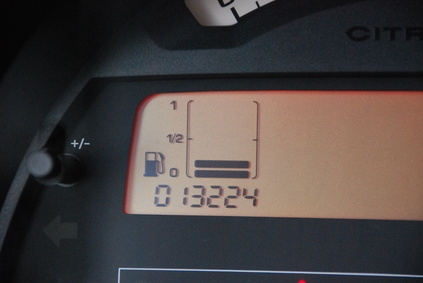
Your car's fuel pump is responsible for pumping the gasoline out of the fuel tank and sending it through the fuel lines to the engine. If the fuel pump is not working properly, your vehicle will not get the fuel it needs to run and may either run badly or completely stop running altogether. Fuel pumps can be expensive and time consuming to repair, so it is important to be aware of some of the factors that lead to fuel pump failure so that you can extend the life of your fuel pump.
Fuel pumps are designed to pump fuel, not air. If your vehicle doesn't have enough gasoline, your fuel pump will be forced to pump air. If the vehicle pumps air regularly, the fuel pump will eventually fail. Your vehicle's fuel pump relies on the fuel that passes through it to provide it with lubrication and work as a coolant to keep the pump from overheating. If the pump is being starved for fuel, it stands a higher chance of overheating and burning up.
Drivers who regularly run their vehicle very low on fuel, or who periodically keep the fuel tank less than a quarter of the way full, will probably experience fuel pump failure earlier than drivers who keep a partially to fully filled tank.
Gasoline that has sat for too long, contains too little octane, or has too much of a corrosive additive such as ethanol or a non-burnable substance such as water, will cause problems for a vehicle's fuel pump. In addition, these substances can cause the inside of the fuel pump or tank to corrode or rust. Bad gasoline can also lead to fuel starvation due to the wrong substances being pumped through the pump and not providing proper lubrication and cooling.
Debris enters your fuel tank from a variety of sources; either it is in the gasoline itself or it is caused by a rusting or corroding fuel tank. If the debris is sucked in by the fuel pump, it can clog it or lead to damage. Some fuel additives help clear debris, but it is a good idea to avoid running your car extremely low on fuel, as debris has a tendency to settle on the bottom of your fuel tank and may be sucked up in greater quantities when your fuel pump is trying to pull the last drops of fuel out of the bottom of your tank.